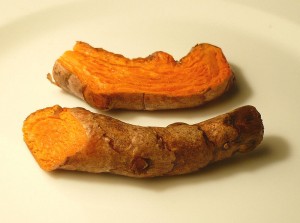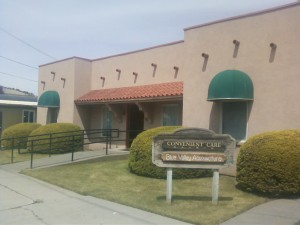Blue Valley Acupuncture Clinic
Located in Dayton, WA.-Serving greater Walla Walla area & nearby towns of Waitsburg, Starbuck & Pomeroy
Turmeric: Pros, Cons, and Contraindications
Written by Lesley Tierra
Turmeric has become increasingly popular over the last decade, first for blood purification and then for joint pain. As it’s hit the mainstream, its uses have narrowed at the same time. While turmeric is a fabulous herb with many beneficial applications, it’s also quite powerful and can strongly imbalance the body if over-used or misused. Most people aren’t aware of this and definitely should be.
First, the good news. While both turmeric tuber and rhizome are considered medicinal, the rhizome specifically is both the spice used in Indian cooking and western herbalism. It has a warm energy with a spicy and bitter taste and enters the Spleen, Stomach and Liver. It invigorates the Blood and Qi and has analgesic, emmenagogue, cholagogue, antibacterial, antifungal and anti-inflammatory properties.
Turmeric rhizome treats amenorrhea, dysmenorrhea, sports injuries, trauma pain and swelling, flank, gastric or abdominal congestion and pain, and eases painful obstruction due to Wind, Cold and Damp with Stagnant Blood, particularly in the shoulders. It’s also used for gallstones, hepatitis, wounds, bruises, toothache, hemorrhage, arthritis and cataracts. Further, the rhizome is anti-inflammatory, antioxidant and purifies the blood and liver. It also strengthens digestion, improves intestinal flora, aids in digestion of protein, and treats gas, colic and jaundice.
With all these great uses, what could be harmful about turmeric? Well, now for the bad news. Turmeric is very bitter and so strongly dries the Blood and Yin. If taken for extended periods or overdosed, it can cause dizziness, blurry vision, insomnia, dry eyes, burning in the hands and feet, steaming bone disorder and night sweats.
I have had many a patient come in with such symptoms, uncertain as to what may have caused them. Because they didn’t have a typical Yin Deficient constitution, we investigated further and found high doses of turmeric supplements often the culprit.
Because it is so highly touted in the western marketplace for pain relief, people tend to take tons of turmeric. It’s not unusual for people to take supplements indiscriminately. If such and so is good for this or that, then people automatically take it and for extended periods of time. As well, they think if some is good or helpful, then more is better. And then they continue to take it preventatively when it may no longer be necessary. While either of these approaches is fine for many supplements, for turmeric it is not.
Turmeric does indeed reduce pain and swelling, but overdosing with it or taking it for prolonged periods does deplete the Blood and Yin. This is even more true for vegetarians, vegans and women during menses and so these folks should be particularly careful with this herb. It takes a long time to nourish Yin again, and the dampening herbs that do so put the digestive system at risk.
When recommending any herbs and supplements, first consider a person’s constitution along with all their signs and symptoms before making your choices. Further, it’s best to not use most herbs for a single commercial use. This may cause subsequent negative impact on other aspects of the body, which in turn, can give a bad reputation to that herb because it now has dangerous “side effects.”
Most herbs are mild in nature and don’t have side effects, just improper use. Narrowing an herb’s use to one famous commercial application not only loses the knowledge of the herb’s other effects and can harm people, but also endangers herbalism for us all. Let’s keep our traditional knowledge of herbs alive and use them within the context of the whole person’s needs and not just support its one commercial use. This not only benefits people, but also supports herbal medicine for us all.




